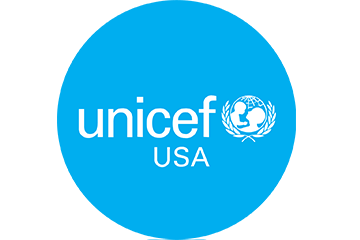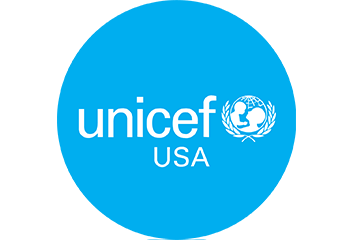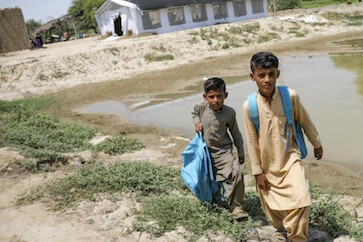International Migrants Day is a day to reflect on the ways in which we can cultivate awareness about the hardships faced by migrants all over the world and take steps toward tackling those challenges. Honoring this day, December 18th is especially crucial during the COVID-19 pandemic as the issues migrants face, such as housing and food insecurity are exacerbated by the constraints of this crisis. Unfortunately, migrants face cramped conditions in camps and makeshift shelters, making millions more vulnerable to infectious diseases. The pandemic has also increased the risk of physical violence, xenophobia and exclusion from access to resources.
Due to fear of gang violence and COVID-19, crossings at the U.S.-Mexico border are currently at an all-time high.
From October 2020 to September 2021, over 1.7 million migrants attempted to cross the border.
Additionally, it is expected that several more waves of migrants will travel from the Northern Triangle – El Salvador, Guatemala and Honduras – in the next few months. These brave individuals are facing food scarcity, homelessness, environmental crises and overall violence in their home countries. Sadly, they are at risk of facing an even more arduous journey northward.
UNICEF is committed to fulfilling the needs of migrant children and their families everywhere we are needed. Earlier this year, UNICEF USA and Hispanic Federation launched a historic partnership dedicated to creating access to services and resources for migrant children and their families, asylum seekers and refugees in the U.S and Mexico. This partnership will provide social services to children and families on both sides of the border, give access to migrants on reliable and free legal services, and strengthen coalition building and public education campaigns.
In September of this year, over 15,000 Haitians were apprehended at the border and subject to significant physical violence. In view of these circumstances, it is important to reflect on the increased discrimination and racial violence migrants of color face. Black migrants are more likely to suffer from verbal as well as physical abuse and to be turned away at the border. As of October 5th, more than 7,000 migrants, almost half, of the 15,000 migrants stranded at the border were put on U.S. chartered flights destined for Haiti.
In response to this crisis, UNICEF Haiti has been on the ground, providing services at airports. UNICEF teams have installed drinking water and handwashing stations, have ramped up child protection efforts and have provided emergency cash transfers to families with children.
Globally, UNICEF’s goal is to respond to all of the needs of migrant children and families. UNICEF has specifically targeted providing education to migrant children as they often face interruptions in their educational journey. Another example is in Bangladesh where over 800,000 Rohingya refugees are housed, half of whom are school-aged children. Most refugee children reside in Cox’s Bazaar, one of the most impoverished districts in the country.
Prior to the pandemic, UNICEF provided education to 70% of Rohingya children aged four to fourteen. The pandemic has led to school closures, which have disrupted learning for over 350,000 Rohingya children an estimated 745,000 Bangladeshi children. To accommodate these changes, UNICEF has supported caregiver-led education at home, partnered with local radio stations to broadcast learning programs, disbursed cash grants to operating primary schools and helped design the Myanmar Curriculum Pilot (MCP), which will be rolled out in refugee camps this coming year.
Asha Rofa, 10, teaches English to her peers in a learning centre in Rohingya refugee camp 1E in Cox’s Bazar, Bangladesh on 10 November 2021. © UNICEF/UN0552020/Spiridonova
Similarly, UNICEF has actively addressed similar programs in Ethiopia, a country with a significant population of migrant children. The country holds nearly 3 million refugees and internally displaced people; 1.2 million are school-aged children. To reach refugee children, UNICEF Ethiopia has provided built-temporary learning spaces, constructed latrines and furnished classrooms. This year, UNICEF Ethiopia has also supported curriculum reform and a comprehensive alternative learning program for children on the move. The program includes: skills development opportunities, psychosocial support and child protection services.
On 10 April 2020, Berhan Berhe, 17, stands in the courtyard of the Civil Service University in Addis Ababa, Ethiopia, where he is one of many returnees to the country being quarantined for 14 days amid concerns about the spread of COVID-19. As an unaccompanied minor, he is classified as a vulnerable migrant, for whom social workers are present – to profile, register, identify needs, look for signs of abuse requiring follow-up services, and obtain information about family. © UNICEF/UNI320540/Tesfaye
UNICEF USA recognizes the invaluable role Diaspora communities play in providing aid to migrant children and their families. These groups are well known for their continued support of children from their ancestral homelands and are instrumental in helping during conflict, particularly periods of migration.
UNICEF USA’s Diaspora and Multicultural Partnerships team collaborates with Diaspora organizations to build a strong and trusting network of individuals who are committed to making a difference for migrant children, our next generation of global citizens.
If you are interested in learning more or becoming a partner of UNICEF USA, please contact:
Arantxa Moreno
Diaspora & Multicultural Partnerships
UNICEF USA
[email protected]





